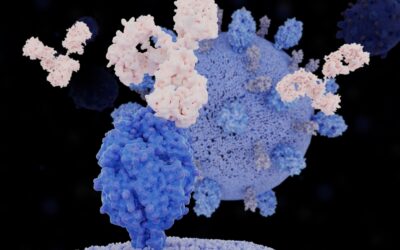Proteolysis-targeting chimeras (PROTACs) are some of the most eagerly discussed therapies in the world due to their potential to treat conditions previously thought undruggable. Their ability to degrade rather than inhibit proteins means they can better treat complex diseases such as cancers and neurodegeneration, giving them advantages over traditional small molecule drugs.
Regulatory
The Future of Precision Medicine: How Bioanalysis is Transforming Personalized Healthcare
Imagine a healthcare landscape where treatments are precisely tailored to an individual’s unique genetic profile, environment, and lifestyle. This vision is no longer a distant possibility—it is the reality of precision medicine.
Bioanalysis of ADC Drugs by LC-MS/MS
Antibody Drug Conjugates (ADCs), which consist of antibodies, payload and linkers, are an innovative therapeutic approach targeting various types of tumors and cancers. It can improve the therapeutic parameters of payload and reduce systemic cytotoxicity. ADCs rely on highly targeted tumor antigen recognition and effective endocytosis to recognize and bind to specific tumor antigens on the cell surface.
5 Tips to Navigating Antisense Oligonucleotide Drug Development
Antisense oligonucleotides (ASOs) have shown great promise in targeting disease-causing genes, offering hope for patients suffering from genetic disorders that were previously difficult to address. ASOs bind to specific RNA sequences, preventing the production of harmful proteins or altering gene expressions.
Key Toxicology Considerations for Large-Molecule Therapies
Large molecule therapies hold immense promise for treating a range of diseases. However, developing large molecule therapies has unique challenges, particularly in preclinical testing. Toxicology studies are crucial because they provide essential data about the drug’s biological effects and safety profile.
Overcoming the challenges of preclinical evaluations for PROTACs
Proteolysis Targeting Chimeras (PROTACs) have brought fresh hope for treating diseases that were previously considered “undruggable.” They offer a promising alternative to traditional small-molecule inhibitors and biologics. But despite the excitement building around the potential of these therapies, preclinical evaluations of PROTACs can present distinct challenges, including pharmacokinetics (PK), pharmacodynamics (PD), safety, and bioanalytical hurdles.
Bioanalytical Strategies for Fusion Proteins
Fusion proteins are a new type of multi-domain artificial protein produced by fusing a biologically active functional protein molecule with other natural proteins (fusion partners) using genetic engineering, chemical modification and other techniques. This can optimize protein performance and even produce new functions. Functional protein molecules are generally endogenous ligands or their receptors, including cytokines, growth factors, hormones, enzymes or peptides and other active substances. Common fusion partners include immunoglobulin (Ig), albumin, transferrin, etc. Among them, fusion proteins based on the fragment crystallizable (Fc) are most widely used.
What Is Small Molecule Preclinical Testing? Overview, Objectives, and Key Test Methods
Small molecule drugs are the most common type of therapeutic on the market. However, that doesn’t mean they are easy to develop. Small molecule preclinical testing is a rigorous and essential process that enables researchers to understand how they behave in and out of the body, including efficacy and toxicity – before they get to human trials. In this guide, we cover everything you need to know about small molecule preclinical testing.
Making the Most of the Golden Age of Small-Molecule Oncology Drugs
Many of humanity’s most impactful pharmaceuticals, including penicillin and aspirin, are small-molecule drugs. Over time, the focus of research has shifted toward biologics, also known as large-molecule drugs. In 2016, for example, eight of the 10 best-selling drugs in the world were biologics. However, small-molecule drugs are now making a comeback as research advances and technology improves. One key area where small-molecule drugs are making the most significant impact is oncology.
Evaluation of Immunogenicity for Oligonucleotide Drugs
Drug research and development has evolved from focusing only on small molecule drugs into an era of advanced therapeutics. Among the pathogenic proteins related to human diseases, more than 80% belong to non-druggable targets. Meanwhile, most existing druggable targets are restricted by their structure and are difficult to develop.
LCMS Preclinical Bioanalysis of LNPs in Advanced Therapy Drugs
Inherited genetic diseases afflict people around the world. These mutations affect individuals’ biological functions, metabolic processes or the production of specific essential proteins, leading to hereditary diseases, including hereditary blood diseases (sickle cell anemia), hereditary retinal diseases (retinitis pigmentosa), and hereditary muscle diseases (Duke’s malignant muscular dystrophy), etc.
3 DMPK Strategies for ADC Drugs
Antibody-drug conjugates (ADCs) deliver targeted therapies to tumor cells while sparing healthy tissues. To ensure their safety and efficacy, it’s essential to understand how they perform in the body through DMPK testing before clinical trials.











